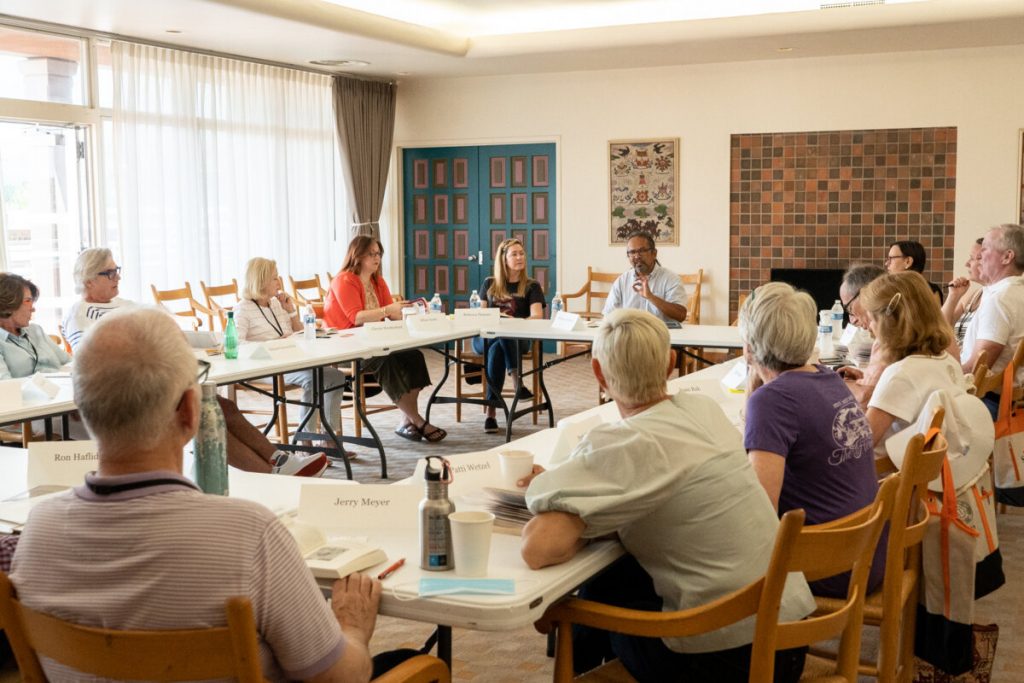Each summer St. John’s College hosts a Summer Classics program, a month’s worth of week-long classes, each inspired by a classic text or subject. Over 30 years old, the series is the largest and longest-running of the college’s community programs, and this year the non-degree summer classes—held at the Santa Fe, New Mexico campus or online—run from July 4 to July 29. (The school also hosts a shorter Winter Classics program.) Registration for summer opened February 15 and anyone—not just students of St. John’s College—can apply.
Think of it like a “learning vacation,” Carolyn Kingston, Director of Community Events and Outreach at the college, told Tricycle, encouraging students to sign up for one or multiple week-long courses. Among the 37 classes this year, 11 are online. The class size—18 students in-person and 12 online—and the teaching style are designed to encourage conversation. It’s “an intense way of unpacking together one of the best texts in the world,” Kingston says. Indeed St. John’s College professors, who are the instructors for the Summer Classics courses, are called tutors, their emphasis on engaged, active learning as opposed to lecture-style instruction. “They’re experts in the art of dialogue,” Kingston says. “Our method of teaching is that nobody is the expert in the room. We’re learning together from the text.”
In any given year those texts change, and while most of them are extensions of the Western Classics master’s program, some find roots in the Eastern Classics master’s program, which was established in 1994. The beauty of the non-degree seminars is that anyone can join, whether it’s a retiree who wants to dive into a favorite book or a potential master’s student who wants to get to know the school or department. Almost two-thirds of the attendees are returning. Kingston describes a welcoming community of students on campus each summer who get to know and support each other over the course of their studies.
This year, courses built on Eastern classics include a class on the Bhagavad Gita (in-person, 2–4 p.m. MDT, July 11–15), an introduction to Buddhism (online, noon–2 p.m. EDT / 10 a.m.–Noon MDT, July 4–8), and a Japanese film class focused on three movies by the great Japanese director Akira Kurosawa (online, 2–4 p.m. MDT, July 11–15). The introduction to Buddhism is called Basic Buddhism 2, but neither Basic Buddhism 1 nor any prior knowledge is a prerequisite. The course poses questions like, “Is there a soul?” and “is there life after death?” Sources include the Sigalovada Sutta, the Kodhana Sutta, the Kalama Sutta, the Mahasudassana Sutta, the Ratthapala Sutta, the Potthapada Sutta, and the Samannaphala Sutta.
See here for the full list of Summer Classics courses for 2022 and learn more about registration here.
Thank you for subscribing to Tricycle! As a nonprofit, we depend on readers like you to keep Buddhist teachings and practices widely available.
